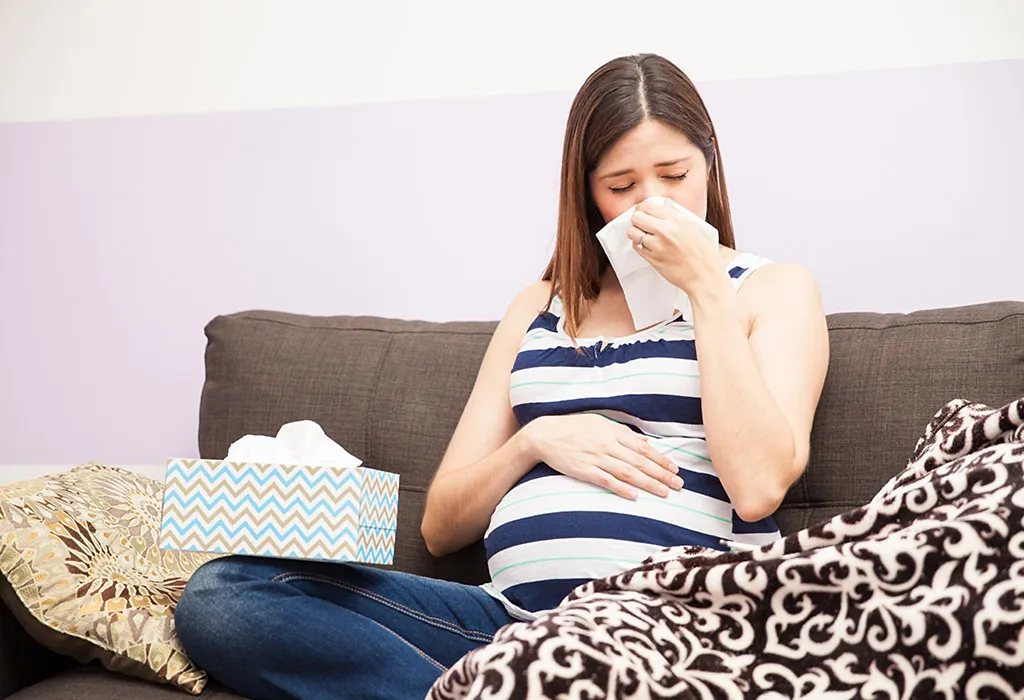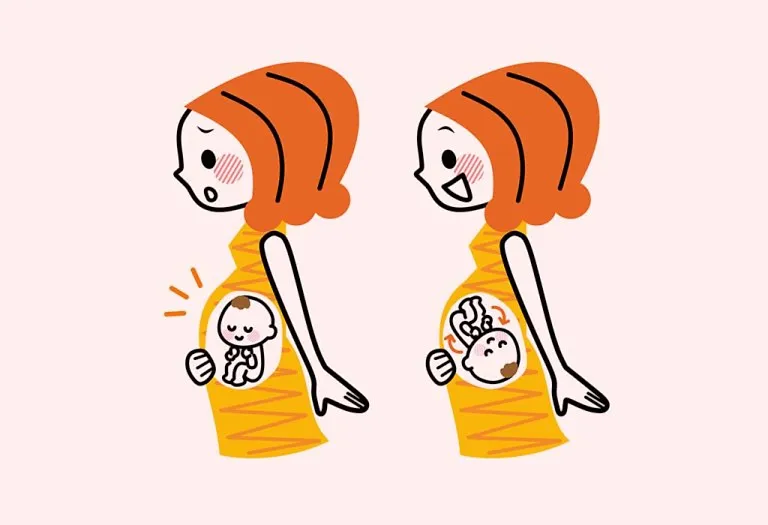TORCH Infection – Symptoms, Causes, Effects and Treatment

Being pregnant is one of the most challenging yet heartwarming times of a woman’s life. Along with the overwhelming happiness of carrying a new life, there looms a fear of illnesses and infections that may harm you and the baby. An example of this is TORCH infections, which can infect a pregnant woman and could reach the growing foetus. TORCH stands for toxoplasmosis, rubella, cytomegalovirus, herpes and other agents. TORCH infection is a term used to describe a group of infectious diseases that can be transmitted to babies during pregnancy, delivery, or after birth. Let’s take an in-depth look at the dynamics between torch infection and pregnancy.
What Is TORCH Infection?
TORCH infection can be a misleading term, as it sounds like a single illness. However, the term TORCH is an acronym of five infections caused by different pathogens (1):
- Toxoplasmosis
- Other infections like HIV, syphilis, parvovirus B19 (fifth disease), varicella (chickenpox) and (Zika)
- Rubella
- Cytomegalovirus (CMV)
- Herpes simplex virus (HSV)
These infections can pose serious problems to the unborn foetus and the mother if not diagnosed at the right moment. These pathogens are transferred from the expectant mother to her foetus during pregnancy or at childbirth (2).
How Common Is Torch Infection?
According to the Cleveland Clinic, TORCH infections are responsible for about 2% to 3% of all congenital disorders (conditions present at birth) (3).
Types of TORCH Infections
TORCH infection is an acronym that consists of the following five infections:
1. Toxoplasmosis
This infection is caused by the Toxoplasma gondii parasite, which can travel from your mouth to the foetus through the placenta during pregnancy. Raw and undercooked meat and food can cause this infection. People can also get this infection from contact with cat faeces (4).
2. Other Infections
Other infections are HIV, Hepatitis B, chicken pox, syphilis and chlamydia. Syphilis is a sexually transmitted infection that can be passed to the unborn baby during pregnancy. Congenital syphillis is caused by bacteria and can prevent the normal development of the baby. Such babies can have deformed bones, severe anaemia, and nerve-related issues, which can cause deafness or blindness (5).
3. Rubella
This infection is known as German measles and is contagious. A body rash, sore throat, and mild fever are some symptoms of rubella (6).
4. Cytomegalovirus (CMV)
Cytomegalovirus (CMV) is an infection from the herpes virus group. Congenital CMV causes jaundice, hearing loss, lung issues, and muscle weakness. It can affect people of all ages and can be passed on to unborn children (7).
5. Herpes Simplex Virus 2
This is a form of genital herpes and is identified by open sores or blisters around the anus or the genitals (8).
Depending upon the development stage of the foetus at the time of exposure, the effects of the pathogens will vary. The above-mentioned diseases are capable of causing developmental issues, since they are transmitted to the foetus through the placenta.
What Causes TORCH Infection in Pregnancy?
Your baby can contract a TORCH infection through you if you are infected by it during pregnancy, as it passes through the bloodstream. Since the baby’s immune system isn’t completely developed, it is vulnerable to illness, and is unable to fight the infection yet.
TORCH infection is transferred from the mother to the baby through the following ways:
1. At Childbirth
While the baby is being delivered, or even after a few minutes of being born, a TORCH infection acquired during pregnancy can infect the baby via blood or body fluids. Fortunately, it is possible to control its spread through modern medical treatment.
2. Through the Placenta
Inside the womb, the baby is yet to develop a powerful immune system of its own, and hence is dependent upon you to fight any infection. The placenta provides a passage for the pathogens, and the baby’s immune system cannot fight them. Though the mother is rarely at risk here, a TORCH infection can lead to a spontaneous abortion.
3. While Breastfeeding
TORCH infection can be passed on to the baby through breast milk while breastfeeding.
Signs and Symptoms of TORCH Infections When Pregnant
While each of the different diseases that form TORCH infections has its individual symptoms, the general signs are as follows (9):
- Jaundice
- Fever and loss of appetite
- Lethargy
- Enlargement of the spleen and liver
- Mild flu – may not be noticeable during pregnancy, but can have a drastic effect on the baby
- Petechiae (tiny purple or red spots on the skin). This is caused by bleeding of the subcutaneous capillaries.
- Enlargement of the liver and spleen (hepatomegaly)
Each infectious agent may pose unique or additional abnormalities that can differ in intensity and severity based on the stage of fetal growth at the time of infection and/or other factors.
Effects of TORCH Infections on Pregnancy
TORCH infections can cause severe pregnancy complications, ranging from intrauterine growth restriction and premature birth to miscarriage. The following are some consequences of TORCH infection on pregnancy:
- Birth defects like bad eyesight, loss of hearing, diabetes at a young age, heart defects, cataracts, and developmental disorders are noticed in babies whose mothers were infected with rubella in the first trimester.
- A direct result of TORCH infection during pregnancy is a miscarriage.
- If the mother is infected with TORCH during 11 to 20 weeks of pregnancy, there is a high risk of congenital rubella syndrome affecting the baby.
- The baby may also get meningitis, anaemia, and pneumonia.
- The infection leads to many, severe complications like premature delivery, stillbirth, spontaneous abortions, congenital anomalies, and intrauterine foetal death.
Diagnosis of TORCH Infections During Pregnancy
During your prenatal visits to the doctor, if you are suspected of having infections, you may get screened for TORCH infections. It is important to diagnose this infection at the earliest possible stage and to monitor the baby’s growth post-diagnosis (10). Even if the maternal treatment is carried out, the foetal health is not benefited in any way. A blood test, PCR (polymerase chain reaction) tests and viral cultures can be done to check the pregnant woman for toxoplasmosis, syphilis, parvovirus, varicella zoster, rubella, cytomegalovirus, and herpes. Monitoring of foetal growth after a positive result is an important part of this diagnosis.
How are TORCH infections diagnosed in babies?
After you are diagnosed with a TORCH infection, your doctor will look for signs of infection in the baby as well. It is important to remember that not all TORCH infections are passed to babies during pregnancy. Also, because a mother has an infection does not mean the baby will get it.
Doctors diagnose TORCH infection in newborn babies using the same tests they do for adults. The diagnosis can be done (3):
- During pregnancy, with an ultrasound or other imaging tools,
- During a physical exam at birth, or
- After checking the baby’s symptoms.
The doctor may also take a fluid sample or a blood sample from the heel or finger of the baby to test for viral infections. Magnetic resonance imaging (MRI) and computed tomography (CT) scans can help identify complications or side effects of TORCH infections.
Treatment for Pregnancy TORCH Infections
The treatment and management of TORCH infections consist of different components, as per the diagnosis made, and they include the following:
1. Toxoplasmosis
For the early stages of infection, you can be treated with pyrimethamine, sulfadiazine, and folinic acid to ensure the pathogens do not impact your baby (11).
2. Hepatitis B
Newborn babies and their mothers who are exposed to Hepatitis B are administered vaccines and given HBIG.
3. Herpes Simplex Virus
If the doctor notices active lesions, he may suggest that you have a Cesarean delivery. The infection period can be shortened through antiviral drugs, which also help in relieving its symptoms.
4. Rubella
While different symptoms of neonates are treated separately, patients infected with rubella are prescribed mild analgesics and plenty of rest.
5. Cytomegalovirus
When a pregnant woman is infected with CMV, treatment for individual symptoms like hepatomegaly, fatigue, and fever is carried out.
Precautions to Prevent TORCH Infection
In order to prevent contracting TORCH viruses in pregnancy, you can take the following precautions:
- Stay away from raw meat. Cook your meat till it is no longer pink.
- Make sure you wash your hands meticulously after handling raw meat.
- Maintain cleanliness and hygiene around you at all times.
- If you are fond of cats and dogs, do not handle strays. as this could cause toxoplasmosis. If you have pets of your own, keep them indoors, and prevent them from wandering.
- Wash your hands with soap after you come home, especially before you eat.
- Do not share personal items like razors, toothbrushes, etc. with others, especially items that can have blood on them.
- Avoid getting tattoos or piercings.
- Chocolate, peanuts, peanut butter, fever, and stress act as triggers for genital herpes. Avoid them if you have a history of herpes.
When to Consult a Doctor?
If you notice any of the following symptoms during pregnancy and wonder if you have one of the TORCH syndrome, consult your doctor immediately:
- Fever
- Swollen lymph nodes in your neck or groin area
- Unexplained rashes or skin lesions
- Body or muscle ache
- Sore throat
- Cold cores or blisters on your genitals or around your mouth
Symptoms may vary depending on the condition, but you can look for the above symptoms.
FAQs
1. Can TORCH infections cause a miscarriage?
Yes, TORCH infections can cause pregnancy complications, such as intrauterine growth restriction, premature birth, stillbirth, or even miscarriage.
2. Are TORCH infections contagious?
Yes, TORCH infections are highly contagious. That means TORCH disease spreads easily and faster.
3. What are the long-term complications of TORCH infections?
Yes, infants born with TORCH infections may have long-term complications, such as learning disabilities, vision or hearing problems, and developmental delays. As most TORCH infections are treatable, it is important to discuss the symptoms of the TORCH virus in pregnancy with the doctor. Identifying and treating the infections as early as possible can help (3).
4. Can TORCH syndrome recur after treatment?
There may be indications that torch syndrome could reappear following treatment. Torch syndrome has the potential to return in pregnancy due to a new infection or reactivation of the existing one (12).
Although pregnancy is a beautiful time in a woman’s life, it can give you more than a few sleepless nights. The key is not to panic. If you know what this infection is all about, as well as its treatment and the methods to keep it away, you can surely win the battle. Do not miss your doctor’s appointments and check-ups, and you and your baby will be fine!
References/Resources:
1. Nicklaus Children’s Hospital – TORCH
3. Cleveland Clinic – TORCH Infections
4. Mayo Clinic – Toxoplasmosis
5. CDC – About Congenital Syphilis
7. CDC – About Cytomegalovirus
12. Medicover Hospitals – Torch Syndrome: Causes, Symptoms, and Treatment
Also Read:
Maternal Sepsis
Cholestasis of Pregnancy
Yeast Infection in Pregnancy
Trichomoniasis while Pregnant
Was This Article Helpful?
Parenting is a huge responsibility, for you as a caregiver, but also for us as a parenting content platform. We understand that and take our responsibility of creating credible content seriously. FirstCry Parenting articles are written and published only after extensive research using factually sound references to deliver quality content that is accurate, validated by experts, and completely reliable. To understand how we go about creating content that is credible, read our editorial policy here.




































